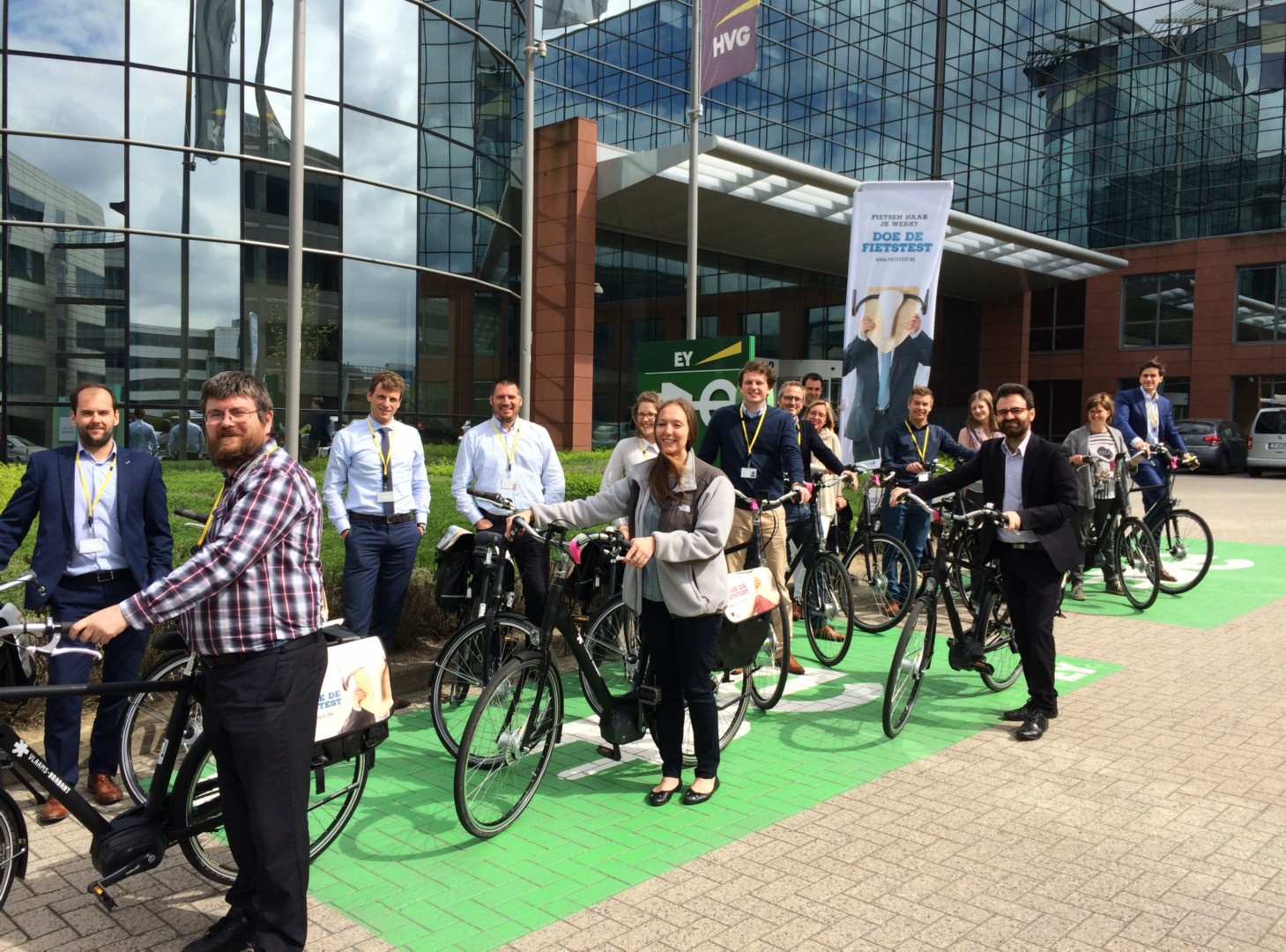Industry parks are becoming more and more difficult to reach for employees, visitors, and distributors because of traffic jams on the roads. ‘We have noticed a great willingness amongst businesses to reduce car dependency, but the actual implementation of measures has proven to be quite difficult’, says Tom Dehaene, Mobility representative for the Province of Flemish Brabant.
The Province of Flemish Brabant, Lead Partner in the European CHIPS (Cycle Highway Innovation) project will launch The Bicycle Test. The project will target businesses in regions that are suffering from high volumes of car traffic. The Province of Flemish Brabant will offer a fleet of bicycles during a period of at least three weeks. These will mainly be electric bicycles and can be extended with folding bikes and electric cargo bikes.
The Cycle Test will target businesses located near the Leuven-Brussels Cycle Highway. The first company to join the campaign will be EY in Diegem. Their offices are located in an area where the cycle infrastructure will be improved in the near future: a cycle bridge across the Brussels ring road which will reduce the distance to work for a number of employees with one kilometer.
The employees from participating companies will engage themselves to cycle to work as much as possible for a period of three weeks by using the provided bicycles. This positive cycling experience should be able to seduce employees to consider buying their own bicycle for their commute.

The Province of Flemish Brabant will support the participating businesses during the campaign. Prior to the campaign, every participating company will receive support to identify participants for the test period. The employer engages himself to communicate about the trial project internally. Employees that are currently using their car to drive to work will receive priority because they are the main target group. A kick-off day will be organised so that participants can receive information on the bicycles provided and help them planning their itinerary from their home to work by bike.
Every bicycle will be fitted with a GPS-tracker that will register all trips anonymously. These data will create a cycle map of the company which can be used by other employees to highlight the most attractive routes to cycle to work. The Province of Flemish Brabant will use this information as a will to improve the quality of the regional cycle network.

